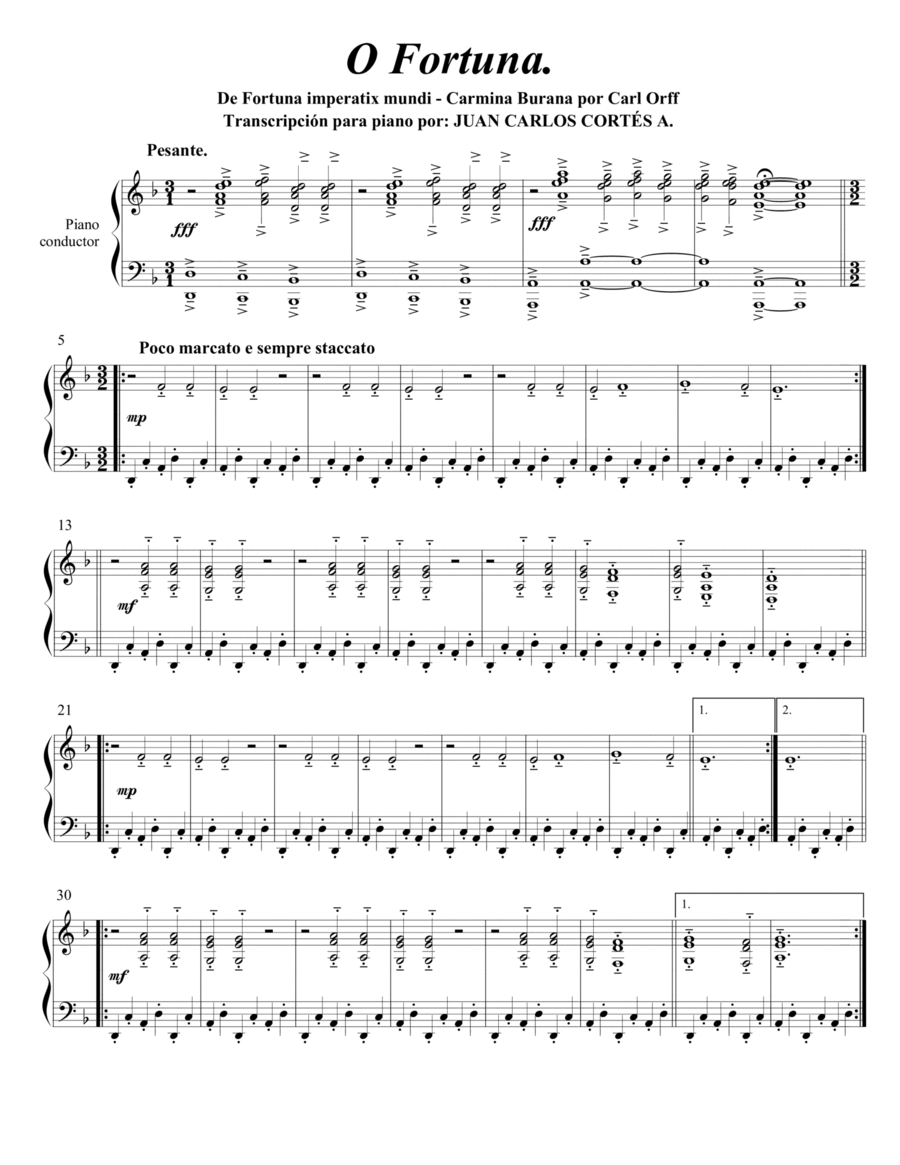Piano Solo - Level 4 - Digital Download SKU: A0.1127973 By Carl Orff. By Carl Orff. Arranged by Juan Carlos Cortés Aguirre. 20th Century,Classical,Contemporary,Instructional,Medieval. Score. 2 pages. Juan Carlos Cortés Aguirre #728581. Published by Juan Carlos Cortés Aguirre (A0.1127973). De Fortuna imperatix mundi - Carmina Burana por Carl Orff , transcripción para Piano Solo por: JUAN CARLOS CORTÉS A. O Fortuna Texto en LatÃn: O Fortuna velut luna, statu variabilis. Semper crescis aut decrescis; vita detestabilis nunc obdurat et tunc curat ludo mentis aciem, egestatem, potestatem dissolvit ut glaciem. Sors immanis et inanis, rota tu volubilis, status malus, vana salus semper dissolubilis, obumbrata et velata michi quoque niteris; nunc per ludum dorsum nudum fero tui sceleris. Sors salutis et virtutis michi nunc contraria, est affectus et defectus semper in angaria. Hac in hora sine mora corde pulsum tangite; quod per sortem sternit fortem, mecum omnes plangite! O Fortuna. Texto en español: Oh Fortuna, como la luna variable de estado, siempre creces o decreces; ¡Qué vida tan detestable! ahora oprime después alivia como un juego, a la pobreza y al poder lo derritió como al hielo. Suerte monstruosa y vacÃa, tu rueda gira, perverso, la salud es vana siempre se difumina, sombrÃo y velado también a mà me mortificas; ahora en el juego llevo mi espalda desnuda por tu villanÃa. La Suerte en la salud y en la virtud está contra mÃ, me empuja y me lastra, siempre esclavizado. En esta hora, sin tardanza, toca las cuerdas vibrantes, porque la Suerte derriba al fuerte, llorad todos conmigo.
